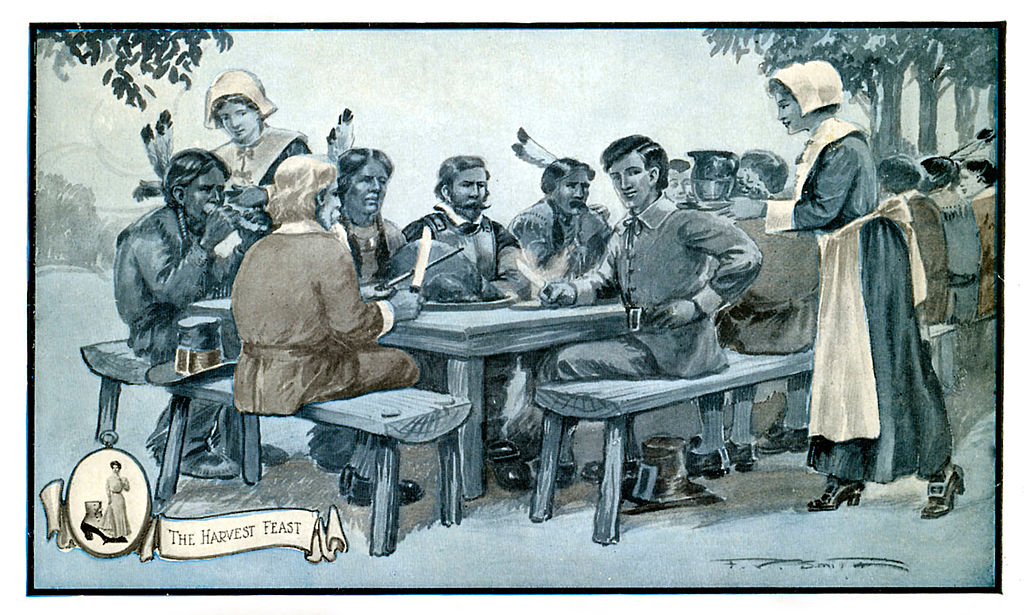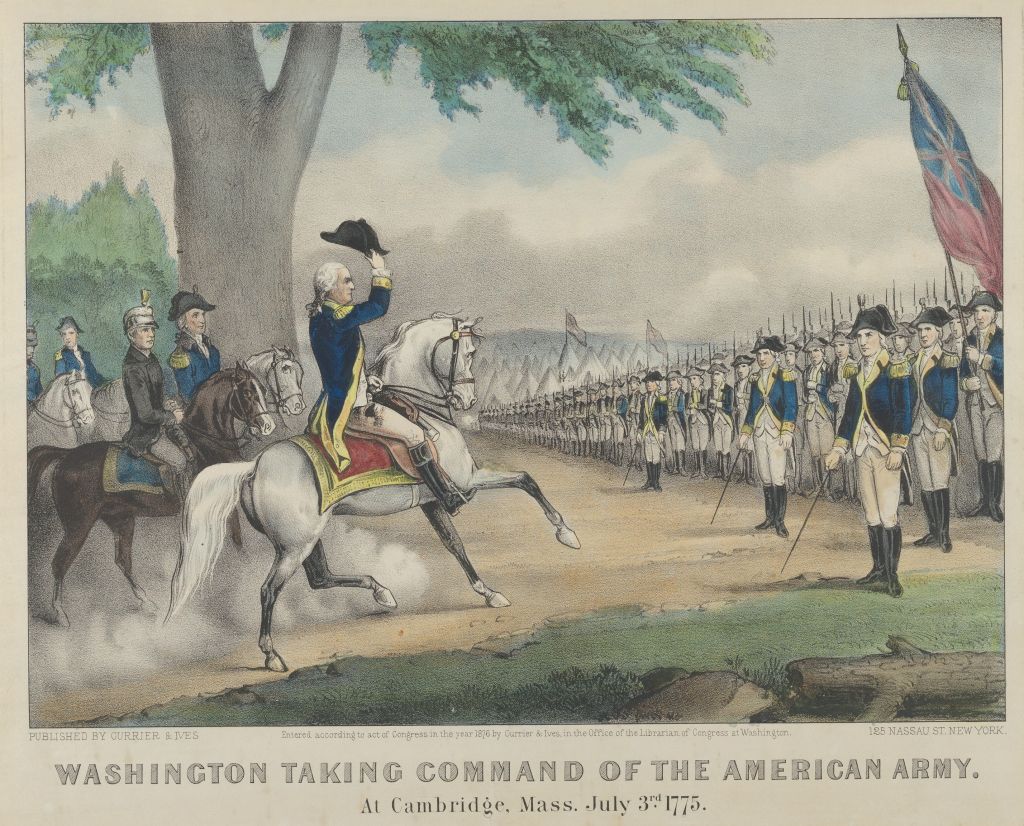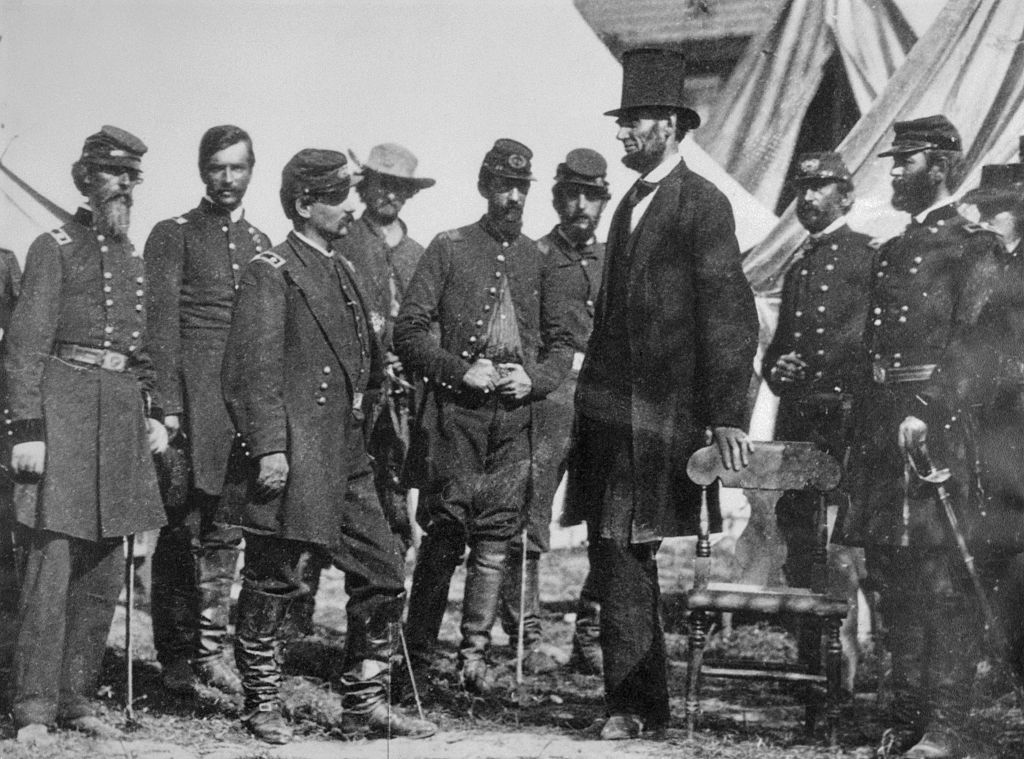-
Halloween
- The Story Behind Halloween – Lesson
- The Story Behind Halloween – Quiz
- Are You Too Old To Go Trick-Or-Treating? – Lesson
- Look out for the Blue Pumpkin – Lesson
- Is the White House Haunted? – Lesson
- Is the White House Haunted? – Quiz
- Mummies Discovered in Egypt – But That’s Nothing to Fear – Lesson
- Salem Witch Trials: When Being Called a Witch Meant Death – Lesson
- Halloween Around the World: It Isn’t Just Costumes and Candy – Lesson
- Halloween Around the World: It Isn’t Just Costumes and Candy – Quiz
-
Thanksgiving
- The Evolution of Thanksgiving – Lesson
- The Evolution of Thanksgiving – Quiz
- The Political Roots of Thanksgiving – Lesson
- The Political Roots of Thanksgiving – Quiz
- Turkey for Thanksgiving – But Why? – Lesson
- Turkey for Thanksgiving – But Why? – Quiz
- This Thanksgiving, Consider Helping the Less Fortunate – Lesson
-
Christmas
-
Easter
- Good Friday: Christ Carried Sin to the Grave – And Left It There – Lesson
- Good Friday: Christ Carried Sin to the Grave – And Left It There – Quiz
- Easter Traditions: From Rabbits to Egg Jarping – Lesson
- Easter Traditions: From Rabbits to Egg Jarping – Quiz
- Easter Monday and Egg Rolling at the White House – Lesson
- Easter Monday and Egg Rolling at the White House – Quiz
-
Federal Holidays and Observances
- New Year’s Day: Just as Political as Anything Else – Lesson
- This Presidents’ Day, Let’s Remember the Weird – Lesson
- Astounding Facts about US Presidents – Lesson
- Astounding Facts about US Presidents – Quiz
- Memorial Day: A Time of Honor and Respect – Lesson
- Memorial Day: A Time of Honor and Respect – Quiz
- From Decoration Day to Memorial Day – Lesson
- From Decoration Day to Memorial Day – Quiz
- Who Was the Poppy Lady, Moina Belle Michael? – Lesson
- Who Was the Poppy Lady, Moina Belle Michael? – Quiz
- The Origins of Flag Day – Lesson
- The Origins of Flag Day – Quiz
- America’s Flag – An Evolved Banner for an Ever-Changing Country – Lesson
- America’s Flag – An Evolved Banner for an Ever-Changing Country – Quiz
- Celebrating the 4th of July – Lesson
- Celebrating the 4th of July – Quiz
- Who Should We Thank for Labor Day? – Lesson
- Who Should We Thank for Labor Day? – Quiz
- Constitution and Citizenship Day – Lesson
- Constitution Day – The First Day of Constitution Week – Lesson
- Constitution Day – The First Day of Constitution Week – Quiz
- The Political Origins of Columbus Day – Lesson
- The Political Origins of Columbus Day – Quiz
- Columbus Day or Indigenous Peoples’ Day? – Lesson
- Columbus Day or Indigenous Peoples’ Day? – Quiz
- Veterans Day: A Day to Honor Those Who Served – Lesson
- Veterans Day: A Day to Honor Those Who Served – Quiz
-
Other Traditions
- Valentine’s Day Love Poems – Lesson
- Love Poems for Valentine’s Day – Lesson
- Who Was St. Valentine? – Lesson
- Who Was St. Valentine? – Quiz
- No Love for Valentine’s Day in the East – Lesson
- No Love for Valentine’s Day in the East – Quiz
- Beware the Ides of March – But Why? – Lesson
- Beware the Ides of March – But Why? – Quiz
- St. Patrick’s Day: A Celebration of the Irish – Lesson
- St. Patrick’s Day: A Celebration of the Irish – Quiz
- May Day: Dancing ‘Round the Maypole – Lesson
- May Day: Dancing ‘Round the Maypole – Quiz
- Cinco de Mayo: Celebrating Mexico’s Victory in Puebla – Lesson
- Cinco de Mayo: Celebrating Mexico’s Victory in Puebla – Quiz
- Mother’s Day: The Anti-War Effort Turned Holiday – Lesson
- Mother’s Day: The Anti-War Effort Turned Holiday – Quiz
- Father’s Day: More Than Just a Day for Ties – Lesson
- Father’s Day: More Than Just a Day for Ties – Quiz
- Presidential Fathers: Responsible for Their Kids and the Country – Lesson
- Presidential Fathers: Responsible for Their Kids and the Country – Quiz
- Proof of the Hanukkah Story Found? – Lesson
- Proof of the Hanukkah Story Found? – Quiz
- Roses Are Red, Violets Are Blue – April Celebrates Poetry, Too – Lesson
- Roses Are Red, Violets Are Blue – April Celebrates Poetry, Too – Quiz
The Political Roots of Thanksgiving – Lesson
Thanksgiving in America has a rich history.

‘Harvest Feast’: settlers and American Indians eating together. (Photo by Culture Club/Getty Images)
The Pilgrims and Native Americans did not invent Thanksgiving, but they embraced the concept and made it their own. Harvest festivals have been celebrated for thousands of years by many peoples, tribes, and nations in appreciation of the bounty produced by their hard work and stewardship of the land. America has turned the end-of-harvest feast into the holiday of Thanksgiving, marking the story of the colonials of Massachusetts and the Wampanoag people in 1621, who enjoyed peace together for a time.
Early New World settlers were happy simply to survive the weather, wildlife, insects, and poison ivy, so they knew the friendship of the Wampanoags, and sharing the food, was a blessing.
But over the years, that all changed. European settlers overpowered the natives, driving them off their land and spreading new diseases. It didn’t take long for that early friendship to fall apart.
Politicians Impose Gratefulness
Harvest festivals continued up and down the Eastern Seaboard, while colonists dealt with New World matters, especially the American Revolution. That ended with a newly created U.S. Constitution in 1789, when President George Washington gave a proclamation calling November 26 of that year a “Day of Publick Thanksgiving.”

Washington Taking Command of the American Army (Photo by Heritage Art/Heritage Images via Getty Images)
Washington’s idea of Thanksgiving didn’t have much to do with the pilgrims. Rather, he celebrated the start of the United States as a nation. He told the people to show gratitude to God for the U.S. victory in the Revolutionary War, as well as “the great degree of tranquility, union, and plenty, which we have since enjoyed.” He also gave thanks for the new Constitution, “the civil and religious liberty with which we are blessed,” access to knowledge and learning, and “all the great and various favors which he [God] hath been pleased to confer upon us.”
He also asked God to help the U.S. stay true to its founding ideals and to make “our national government a blessing to all the people, by constantly being a Government of wise, just, and constitutional laws.”
According to his estate, Mount Vernon, Washington “would order special thanksgiving services for his troops after successful battles” during the Revolutionary War. He also supported efforts by the Continental Congress to proclaim days of thanks for military victories.
The next presidents didn’t keep the Thanksgiving tradition. It wasn’t until much later that the holiday was revived.

President Abraham Lincoln with Civil War officers (Getty Images)
President Abraham Lincoln brought back a day of thanks during the height of the Civil War. Lincoln expressed his own gratitude to God for the victory at the Battle of Gettysburg, calling upon his countrymen to “set apart and observe the last Thursday of November next, as a day of Thanksgiving and Praise.”
A Pilgrim Attitude
Eventually, the Thanksgiving tradition took root among the American people.
Traditionally, the last Thursday in November was set aside as a day of Thanksgiving. People decided to just be grateful for something and count their blessings. But then President Franklin Delano Roosevelt shook it up a bit. In 1938, FDR changed the date to the third Thursday. But no one listened; Americans failed to accept the date change, and Thanksgiving was celebrated on the fourth Thursday. In 1941, that date had to be set in stone by the 77th Congress.
In 1621, folks had the right attitude. They were simply happy to be alive.